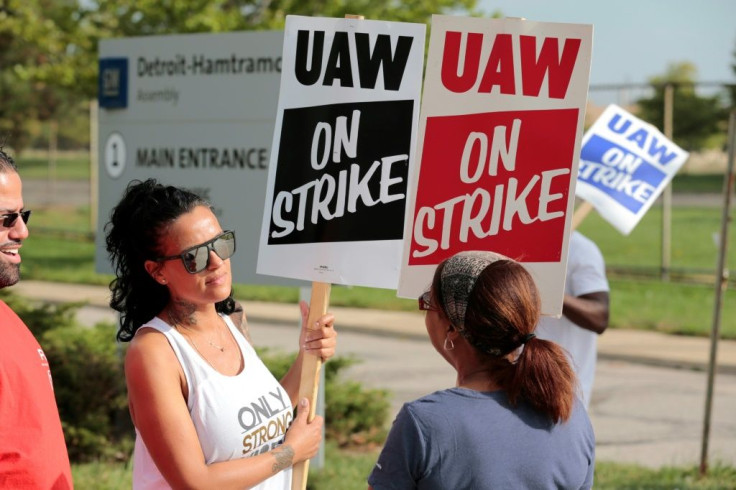GM Goes Public With Latest Offer As US Strike Grinds On

General Motors went public Friday with highlights of its latest contract proposal, prompting a sharp response from union leaders as a grinding strike moved towards a fifth week.
GM, in a message to workers that was also published on its website, said its latest offer to United Auto Workers leadership included wage increases, health care benefits without higher employee costs and a pathway to permanent employment status for temporary workers.
"Our offer commits to thousands of new jobs right here in the US and billions of dollars in new investments in our communities," Gerald Johnson, executive vice president for global manufacturing, said in the letter.
Leadership of the UAW reacted angrily to the GM move, accusing the company of "playing games" and of "purposefully stalling the process to starve UAW-GM workers off the picket lines to protect millions of dollars of corporate bonuses."
Talks continued Friday. Nearly 50,000 hourly workers have been striking since September 16 in a walkout that has halted production at 31 factories and led to thousands of layoffs at auto supply companies.
Marick Masters, a professor at Wayne State University who specializes in labor negotiations, said GM's latest move and the UAW's forceful response suggest the strike is likely to go on at least "somewhat longer" even though the negotiations had made some progress in narrowing the differences between the two sides.
"The pain is beginning to set in on both sides and they'll realize that sooner or later," Masters said in an interview. "They'll have to come to terms with reality and strike an accord."
Masters said concerns about job security are at the center of the UAW's stance in light of GM's emphasis on building electric cars and developing autonomous technology as its future strategy.
The talks center on "how much of a commitment is GM willing to make to produce combustion-engine automobiles in the US for the foreseeable future," said Masters.
© Copyright AFP {{Year}}. All rights reserved.





















